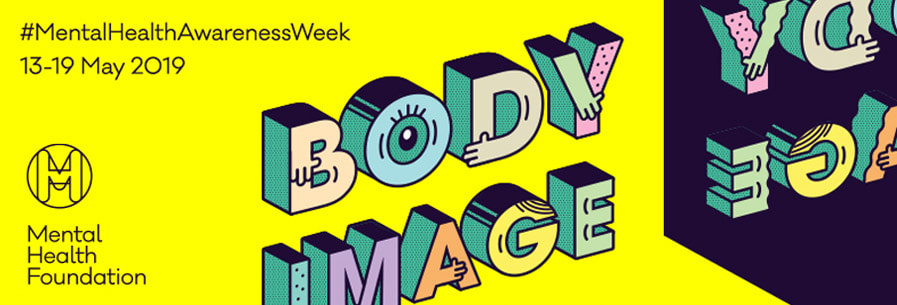|
Mental Health Awareness Week 13-19th May 2019
Do you know, it thrills me when I see the various campaigns out there and especially when they are about raising awareness around mental health. It’s not before time that we are really engaging with the subject, especially as, believe it or not, it applies to our universal human condition. I was shocked, if not a little confused, to hear someone say: “I don’t have mental health”, when I was talking to them about this very subject. What the individual actually meant was that she didn’t have mental ill-health. Of course, as I was speaking to her in my professional capacity, it was my duty to correct her and reassure her that she did indeed have mental health; whether that had been compromised in some way was a matter for the assessment I was undertaking. It’s interesting, I think, that as soon as the word “mental” is used, some people automatically think that this is a slur on their character, even today, when we are so much better at communicating the importance of health generally. So, what I’m trying to communicate is that we all have a mental health, which is intrinsically linked to our physical and spiritual health. So, what we know is that if one area of our wellbeing has been compromised, then it is likely that another area will be compromised as a result. For example, break a leg and I may feel pretty fed up mentally as I’m prevented from going about my well organised and busy life. So what is mental health? Well, it is a state of being that affects how we think, feel and act. It is a state of well-being that enables us to live and work fruitfully within our various relationships and communities, enables us to maximise our full potential and helps us to cope with the normal stresses of everyday life. But, as human beings, our mental health fluctuates throughout our lives, just as our physical health does. Complex beings that we are means that we are often exposed to difficulties along the way that have the potential to challenge our coping mechanisms and leave us pretty isolated if we do not draw the support that we need. But, our capacity to draw that support will depend on a number of factors. As a counsellor, I’m fascinated by human behaviour and human development. I’m mindful that the way in which we function as adults is borne out of our formative experience. If our childhood experiences had not been supportive or affirming, then we may be less likely to reach out to others for support as adults. Fear of being ridiculed or labelled is often a stumbling block, especially among the men I see in my counselling room. I’m mindful too that cultural issues may also inform our capacity to draw support. Common features might include a “stiff upper lip” mentality that does allow for the expression of vulnerability. The shocking truth is that in 2017, 5,821 suicides were recorded in Great Britain. Of these, 75% were male and 25% were female. Suicide is the most common cause of death for men aged 20-49 years in England and Wales. Less extreme, it is estimated that 1 in 6 adults experiences a common mental health problem, such as anxiety or depression and 1 in 5 adults has considered taking their own life at some point. So I wonder, where are you in all of this? What was your early experience? How easy is it for you to open up about difficulties you are struggling to address? Well, if I only have one message, then it is this:
Best wishes, Jan
27 Comments
Asking the uninitiated whether they have heard of Mindfulness can be very tricky, as I know to my cost! “I’m not into that kind of airy-fairy stuff”, or “It’s a bit weird” are just a couple of the responses I’ve had, although underneath the statement is often an admission that the person doesn’t know anything about it. It’s so easy, it seems to me, to fall into the trap of closing one’s mind to anything that lies outside of our personal experience, which is a shame, especially because mindfulness practices pre-date our modern culture and have, over centuries, been proven to significantly enhance wellbeing.
So, what is Mindfulness? Well, to put it simply, mindfulness is the awareness of thoughts, feelings and bodily sensations experienced within the present moment, merely observing without judgement about whether they are right or wrong. Mindfulness is an art and something to be learnt. Its aim is to free the mind and body from its tendency to get stuck in negative emotional patterns and behaviours. When we are mindful we can be more aware of our reality and the choices we are able to make, rather than getting stuck in the problems of yesterday or our assumptions about tomorrow. If we begin with the mantra that says “All I have is now” then the possibilities for life right now can be limitless. In a nutshell, mindful living is the awareness that emerges as we pay attention to what is happening in our mind, our body and our deeper emotional self. If we are fully present, we have the capacity to shift into “being” mode and respond in a way that allows us to let go of judgement, both of ourselves and others and to live more peacefully, within ourselves and with others. To quote the great philosopher Aristotle: “We are what we repeatedly do”, sums up our human condition and, often, we live in a way that is the polar opposite of the mindful experience and so we remain shackled to those attitudes and behaviours that do little to sustain health. What we know is that struggling to keep up with the pressures and demands of the modern world can lead us in to a vicious circle of anxiety and stress leaving us, at least, feeling exhausted and unhappy with our lot. It can be easy enough to seek out strategies for coping that have the potential to compromise our health. “What do you do to switch off at night when you can’t sleep?”, I might ask my client and it’s not unusual to hear the response: “I have a beer, or three to relax me”. What some people don’t realise is that alcohol is both a stimulant and a depressant and, if taken in excess, is known to have a number of health implications. How much easier then, to equip ourselves with strategies that have been shown to have no detrimental impact on heath in clinical trials. Developing mindfulness practices have been shown to reduce the negative physical and psychological effects of anxiety, stress and depression, although one doesn’t need to be struggling with these issues to experience the benefits of it. Indeed, it is more likely that by using these practices we can minimise the potential for these things to escalate in the first place. This blog is not the place for me to teach the practice of mindfulness, although much has been written on the subject. If what you have read here has kindled an interest and you are keen to explore this fascinating subject in more depth, then perhaps this is a good place to begin. There are many reputable mindfulness courses available and I would urge you to explore what is available in your area but be sure to access only those courses that meet the standards for mindfulness practice. If at this stage you would prefer a taster, then a Smart App. may well suit your needs and I recommend that you visit your App. Store for further information. I often recommend the App: “Headspace” to my clients, which can be downloaded for free and offers you the opportunity to begin the journey of mindful living. Another resource I am more than happy to pin my flag to is a book by Professor Mark William and Dr Danny Penman entitled: “Mindfulness, a practical guide to Finding Peace In A Frantic World” … don’t forget to pick up the copy that includes a free CD of guided meditations. The book is an eight week mindfulness programme and, once familiar with the exercises on the CD, they are particularly useful in any situation, whether dealing with the stresses of a busy classroom or struggling to get those forty winks! If that is not enough, do look out for forthcoming events here at JR Corporate Health where, along with mindfulness workshops, we look forward to rolling out our innovative programmes designed to support the whole of your life journey! Namaste. Jan Rogers. JR Corporate Health |
BlogJR Corporate Health blogs cover topics such as management support, supervision, psychological support, critical incident support and wellbeing in the workplace. Archives
July 2021
Categories
All
|
JR Corporate HealthConnectt |
Services |
Legal Info |
© Copyright 2023 JR Corporate Health Limited | JR Corporate Health Limited is registered in England, number 11264109, and whose registered office is Bow Cottage, Selworthy Green, Selworthy, Minehead, Somerset TA24 8TP.
Email [email protected] Mobile 07785 977771
Website Design & Development by Creative Remedy
Email [email protected] Mobile 07785 977771
Website Design & Development by Creative Remedy



 RSS Feed
RSS Feed